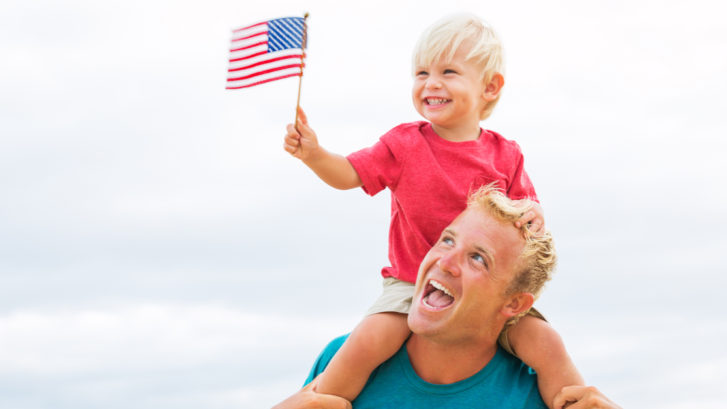Fourth of July Safety Tips
What would the Fourth of July be without a picnic, possibly with a big family-and-friends cookout, topped off at dusk with celebratory fireworks? Your concierge family practice doctors at MD 2.0 in Jupiter, Florida, want you to have a happy holiday. We also want you to be safe, which is why we decided this would be a good time to review firework safety basics.
What You Need to Know
Before diving into essential tips, here are several statistics from the U.S. Consumer Product Safety Commission (CPSC):
On average, 250 people go to the emergency room every day with fireworks-related injuries in the month around the Fourth of July. In addition, the most injured body parts are: hands and fingers (33 percent of fireworks-related injuries); heads, faces, and ears (28 percent); legs (18 percent); trunks (12 percent); eyes (9 percent); and arms (8 percent). And, more than 69 percent of the injuries are from burns.
Such injuries are guaranteed to put a damper on even the happiest gatherings. The National Safety Council (NSC) reports that in 2016 at least four people died and 11,100 were injured badly enough to require medical treatment.
Then there’s the risk of fire. The NSC says that more fires are reported on July 4 than any other day of the year. And according to the National Fire Protection Association (NFPA), each year fireworks cause an average of 1,300 structure fires, 300 vehicle fires, and nearly 17,000 other fires, which result in thousands of injuries.
A Guide to Fourth of July Safety
So celebrate the holiday, but keep these safety tips from the CPSC in mind when using fireworks:
- Never allow young children to play with or ignite fireworks.
- Avoid buying fireworks in brown paper. This is a sign that they are for professional displays and could pose a danger to untrained users.
- Always have an adult supervise fireworks activities. Parents do not realize that young children frequently suffer injuries from sparklers, which burn at temperatures of about 2,000 degrees — hot enough to melt some metals.
- Never place any part of your body directly over a fireworks device when lighting the fuse. Back up to a safe distance immediately after lighting fireworks.
- Never try to re-light or pick up fireworks that have not ignited fully.
- Never point or throw fireworks at another person or animal.
- Keep a bucket of water or a garden hose handy in case of fire or other mishap.
- Light fireworks one at at time, then move back quickly.
- Never carry fireworks in a pocket or shoot them off in metal or glass containers.
- After fireworks complete their burning, douse the spent device with plenty of water from a bucket or hose before discarding it to prevent a trash fire.
- Make sure fireworks are legal in your area before buying or using them.
Additional Tips
- Never use fireworks while impaired by drugs or alcohol.
- Ensure older children use them only under close adult supervision.
- Anyone using fireworks or standing nearby should wear protective eyewear.
- Never light them indoors.
- Only use them away from people, houses, and flammable material.(Better yet, grab a blanket and a patch of lawn, kick back, and let the experts handle the show.)
If injuries do occur, seek immediate medical help. If an eye injury occurs, do not allow the victim to touch or rub it, which could exacerbate any damage. Also do not attempt to treat it yourself with any kind of flushing fluid — even water — or ointment. For burns, remove any clothing on the injured area, but do not attempt to administer any kind of first aid care. Above all, keep these tips in mind to celebrate safely and enjoy the holiday.
Have a happy and safe Fourth of July!

